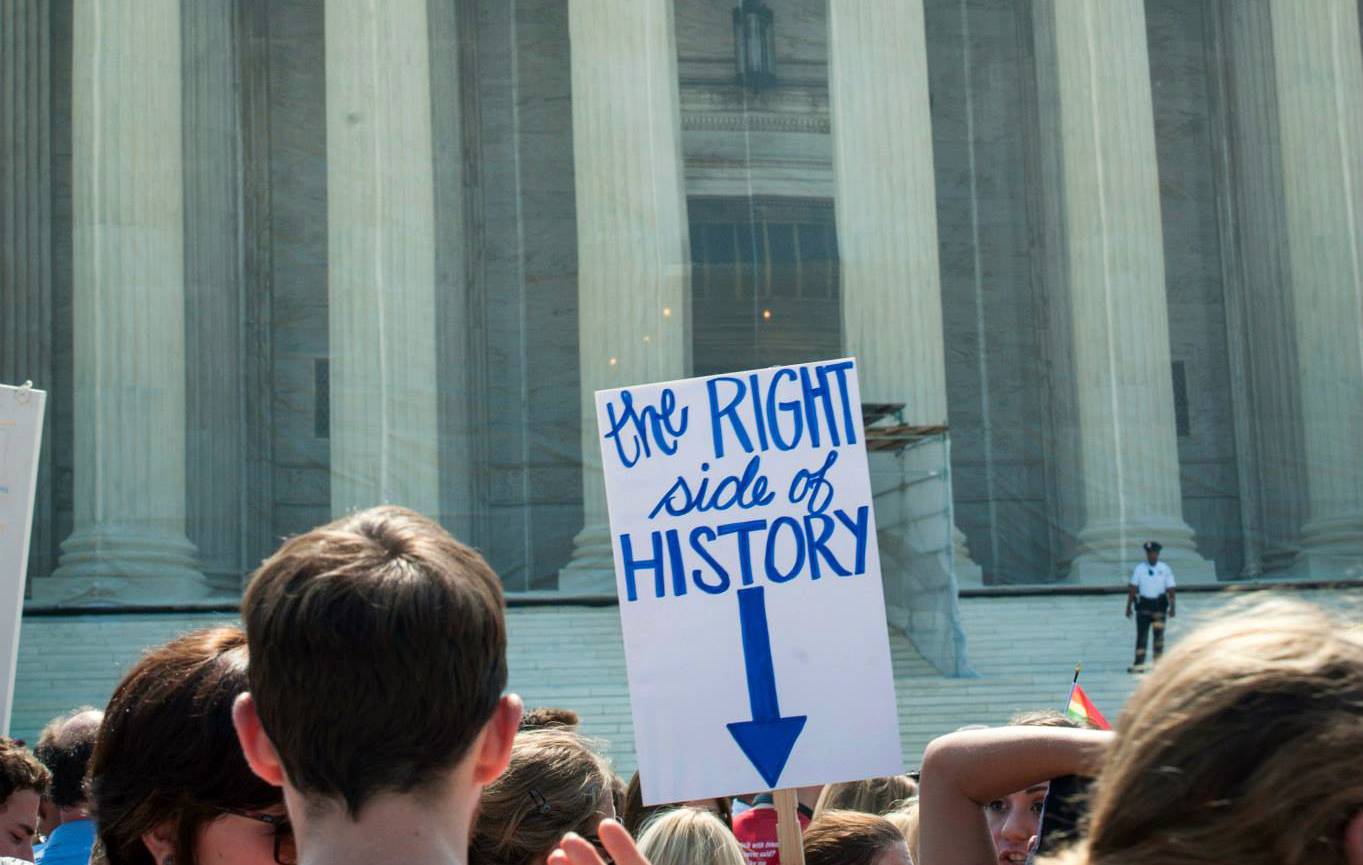Highlights from this year’s Supreme Court term included three significant wins, one painful loss, and one unsettled matter: The Court upheld affirmative action, struck down onerous restrictions on abortion and affirmed the “one person, one vote” principle.
Sadly, in a 4-4 tie vote, the Court also left in place a lower court order barring implementation of President Obama’s order to defer removal proceedings against certain undocumented immigrants, leaving millions of immigrants in this country at risk of deportation. And, in an unusual action, the Court chose not to resolve the conflict over contraception coverage under the Affordable Care Act (ACA).
All these cases intersect with our work and affect the people we represent, involving remedying bias in college admissions, distortion of religious freedom to cloak discrimination, attempts to dilute voices of the less privileged in the democratic process, government intrusion into intimate private decisions, and immigration policies that leave immigrants, including those who are LGBT and living with HIV, in fear of deportation. We participated in friend-of-the-court briefs in all these cases precisely because of their implications for the diverse populations we serve.
Here’s what happened:
Victory: In April, in Evenwel v. Abbott, the Court unanimously rejected a challenge to the well-established “one person, one vote” principle that legislative districts should be based on the total number of people who live within them.
By seeking to restrict those counted in districting only to registered or eligible voters, instead of the general population, the challenge would have stripped representation for a broad swath of people, including LGBT people, immigrants, people of color, families with children, the formerly incarcerated and those living with disabilities. Lambda Legal had joined a brief by a coalition of civil and voting rights groups highlighting the impact that reversing the “one person, one vote” principle would have had on underrepresented populations. The Court’s ruling affirmed that, when it comes to redrawing legislative districts, everyone is entitled to representation because our elected officials represent us all, not just those who have the right to vote.
Unsettled: In May, an evenly divided Court sent Zubik v. Burwell, the second major challenge to the Affordable Care Act’s birth control benefit, back to the lower courts for further proceedings without resolving key legal questions.
Lambda Legal had filed a friend-of-the-court brief in Zubik urging the Court to reject arguments made by religiously-affiliated nonprofit organizations that their religious beliefs are burdened simply by the ACA’s requirement that they notify the federal government they are opting out of providing contraception coverage to their employees -- even though such employers may refuse to provide the coverage. The Court left unanswered the critical question whether the concept of religious freedom can be stretched to validate the employers’ attempts to avoid the obligations of a federal law protecting access to basic reproductive healthcare.
Victory: In Fisher v. University of Texas at Austin (UT), the Court ruled in favor of UT’s efforts to achieve equal opportunity in higher education by considering race as a factor in undergraduate admissions decisions.
Racial and ethnic disparities persist in our nation, in such areas as education, employment, criminal justice and healthcare. The Court again recognized the value of diversity in our society, upholding race as a legitimate consideration in undergraduate admissions, both to combat the legacy of prejudice and to create a diverse student body that benefits all. Those we represent know all too well the importance of understanding, inclusion and pride in being part of a community that values diversity and the strengths and experiences each of us can bring to society. This ruling came just days after LGBT people, most of whom were Latinx, were killed in Orlando for being who they are. In order to make ours a better nation, we must ensure that our educational institutions, and the world beyond them, bring together people of diverse backgrounds who can learn from and support one another.





